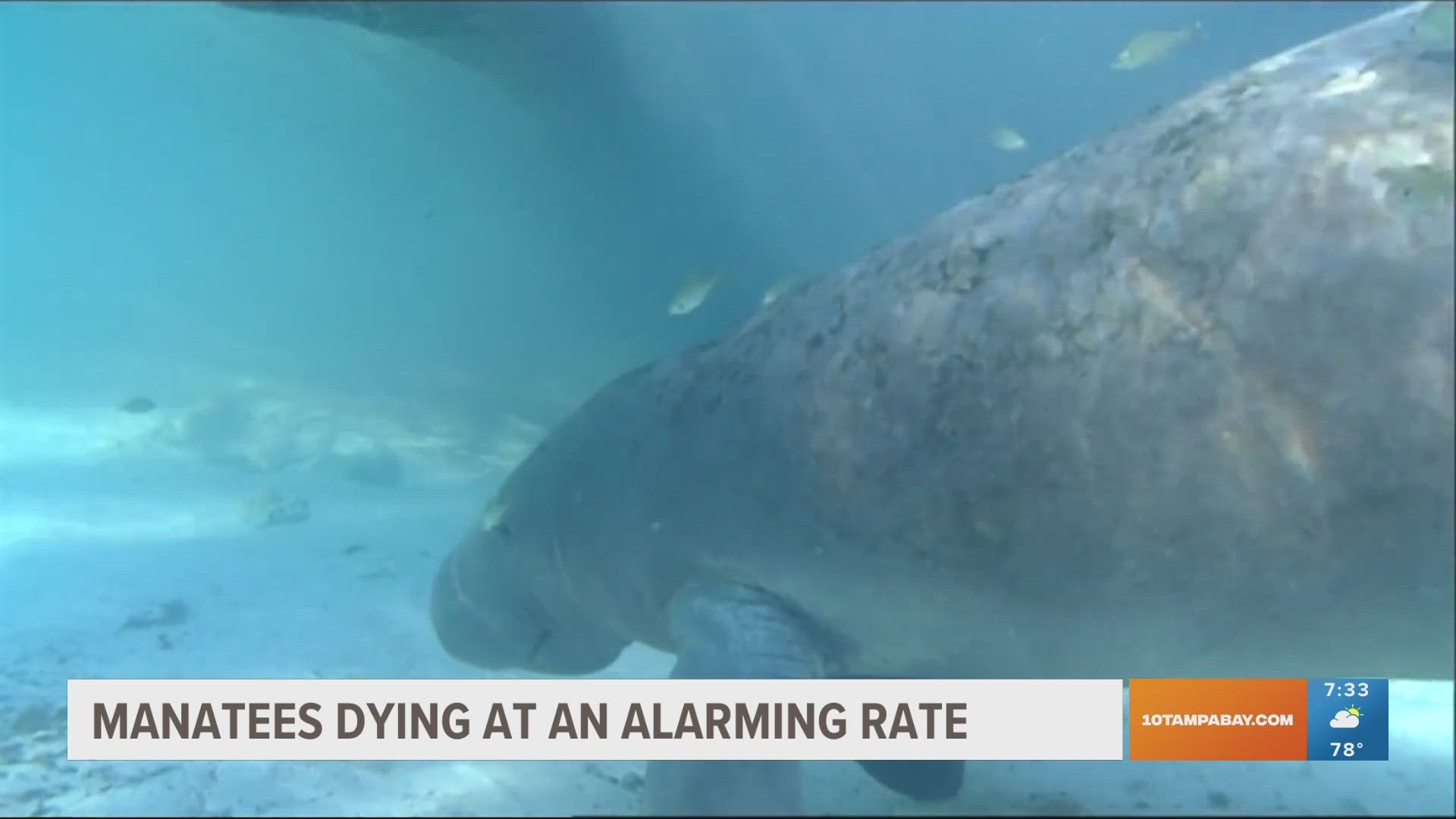ST. PETERSBURG, Fla. — After multiple requests and petitions, the U.S. Fish and Wildlife Service has officially moved one step closer to reclassifying the manatee as "endangered" on the Endangered Species List.
In a press release, the FWS announced that they had finished reviewing two petitions about uplisting West Indian manatees (and two subspecies in Florida: the Antillean and Florida manatees) from their current status as "threatened" on the list, and they determined that the petitions provided compelling evidence supporting the move.
The FWS will now gather scientific and commercial data on manatees, particularly data issued between this year and 2017, when the manatee was last reclassified as a "threatened" species after determining that the population of the animals had likely surpassed just 6,600 in the wild.
According to marine biologists and conservationists, the number of yearly manatee deaths has spiked since 2020. The main reason for this is believed to be a dwindling food supply. Runoff, wastewater leaks and other forms of pollution have led to a decrease in habitat quality and an increase in harmful algal blooms that kill the manatee's main source of food: seagrass.
Many manatees have died of starvation. Wildlife observers in 2021 reportedly noted that many manatees that were washing up onshore looked seriously emaciated from a lack of food.
At least 476 manatees have died in Florida so far this year, according to data from the Florida Fish and Wildlife Conservation Commission. Uplisting the species to "endangered" would boost protection for them under the federal Endangered Species Act. Federal wildlife officials are currently revising what is considered a “critical habitat” for the recovery of manatees in Florida.
The U.S. Fish and Wildlife Service has 12 months from when the petition was first filed to make its final decision about reclassifying the manatee. Conservation groups are reportedly expecting a decision later this winter.

